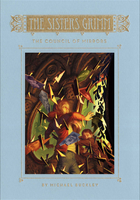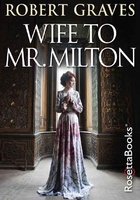'THIS INHOSPITABLE TOWN'
IN THE MICHAELMAS TERM OF1873, Sherlock Holmes arrived at Sidney Sussex College, Cambridge, to study Natural Sciences. This was not what his father wished. William Scott Holmes wanted his second son to follow both himself and his brother Mycroft to Oxford and he wanted him to read Law. Sherlock, who believed himself overshadowed by his older brother, clearly thought that Oxford, where the memories of Mycroft's academic triumphs would still linger, was not the university for him. Nor did he want to study Law. His father, after lengthy debate, gave way, agreeing with Sherlock's own suggestion that he should go to Cambridge and embark upon a degree in science.
It is unclear how Sherlock's interest in chemistry and the sciences had developed in the rural fastness of the moors. His father, closeted away with his books on ancient history and the geography of India, would not have encouraged it. As far as we know, none of Holmes's private tutors, men who were classicists first and foremost, would have been able to teach him even the most basic scientific knowledge. Yet somehow the young Holmes had stumbled upon a subject that was to fascinate him for the rest of his life. The Natural Sciences tripos had only been introduced at Cambridge in 1851 and, in the 1870s, there were still comparatively few students. 'My line of study was quite distinct from that of the other fellows,' Holmes admits in 'The Adventure of the "Gloria Scott'".
Disappointment must have hit Holmes hard from his earliest days at Cambridge. He had struggled to persuade his father that neither Oxford nor Law would suit him. He had chosen to study a subject that was still snobbishly regarded by many as a poor relation to the Classics, Mathematics and the Law. Yet, when he arrived at Sidney Sussex, he found that neither the college nor the course of study was to his taste. Never a clubbable man, Holmes joined few societies at Cambridge and seems to have led an almost monastic life. 'I was never a very sociable fellow, Watson,' he admits in 'The Adventure of the "Gloria Scott'", 'always rather fond of moping in my rooms and working out my own little methods of thought, so that I never mixed much with the men of my year.' (The use of the word 'moping' is interesting and is a small indication of just how unhappy Holmes was when he was at Cambridge.)
Given his love of the theatre, Holmes might have become a member of one of the numerous amateur dramatic groups that flourished in 1870s Cambridge. The Amateur Dramatic Club (ADC), the oldest university dramatic society in England, had been founded in 1855 but there is no record of Holmes joining it or any other group. The only club whose meetings we know for certain he attended (the minutes survive in the library of Trinity College) is a surprising one. Holmes, the arch-rationalist, the man later committed to detection as an 'exact science', was a member of a small group, mostly undergraduates, who gathered around the charismatic figure of Edmund Gurney, a young don at Trinity, to undertake what they called psychical research.
Holmes's attitude towards religion, the afterlife and the supernatural was, like so much in his mental make-up, ambiguous. Watson records, in The Sign of Four, his friend's admiration for The Martyrdom of Man by Winwood Reade ('Let me recommend this book — one of the most remarkable ever penned'), which would suggest that Holmes, having long outgrown these youthful flirtations with spiritualism and conventional piety, had little, if any, belief in the traditional comforts of religion. Reade's book, one of those Victorian works that caused enormous debate at the time yet is now almost forgotten, was first published in 1872, three years before its author's death at the age of only thirty-six. A sweeping and idiosyncratic intellectual history of man, from ancient times to the present day, it argued forcefully that religions were cultural constructs, the work of man not God. Reade, who was himself as remarkable as his book, had travelled widely in Africa and had accompanied British troops as a newspaper correspondent during the Ashanti War of 1873. In all likelihood Holmes had read The Martyrdom of Man soon after its publication, when he was at Cambridge. (Watson proved less receptive than Holmes to what he called Reade's 'daring speculations'. More conventional than his friend in all matters, including religion, he had at the time recently been smitten by his future wife Mary Morstan and, as he confesses, 'I sat in the window with the volume in my hand but … my mind ran upon our late visitor.')
Yet Holmes, like so many thinking Victorians, remained torn between faith and doubt. 'What is the meaning of it, Watson?' he asks in 'The Adventure of the Cardboard Box'. 'What object is served by this circle of misery and violence and fear? It must tend to some end, or else our universe is ruled by chance, which is unthinkable. But what end? There is the great standing perennial problem to which human reason is as far from an answer as ever.' He could not quite shake off belief in an afterlife in which would be imposed the justice that, he saw only too clearly, was absent in this world. 'The ways of fate are indeed hard to understand,' he remarks in 'The Adventure of the Veiled Lodger'. 'If there is not some compensation hereafter, then the world is a cruel jest.' And, however rigorously he strove to suppress such elements in his personality, it is clear that he failed to shake off completely those traces of mysticism and unorthodox beliefs that led him astray during his time at Cambridge. Soon after meeting Watson, he is regaling him with his ideas about 'vague memories in our souls of those misty centuries when the world was in its childhood', and there were few cases more likely to catch his attention than those that held a hint of the weird or the supernatural. However, the militant scepticism with which he approached the Baskerville case and, later, the stories of the Sussex Vampire and the Creeping Man, hints at the fervour of a former believer fallen into doubt.
Holmes had few fond memories of Cambridge. More than twenty years after he left, when forced to spend a night there in pursuit of the true story behind Godfrey Staunton's disappearance in 'The Adventure of the Missing Three-Quarter', he gloomily refers to it as 'this inhospitable town'. In 1874, a year after going up to the university, Holmes decided, without consulting anyone, that Cambridge was not for him. His future, he concluded, lay not in the academic world but on the stage. The next his father heard of him was a telegram informing the family that he had left Cambridge and was now working as an actor in London. He was appearing on the stage at one of the capital's most famous theatres, the Lyceum, together with the most talked-about actor of the day, Henry Irving.
How Holmes persuaded Irving and the management of the Lyceum theatre that he was of sufficient calibre to join their company remains a mystery. There is a slight possibility that the two had met before Holmes went up to Cambridge (Irving toured the provinces throughout the 1860s and the teenage Holmes might have attended one of these performances) but, in all likelihood, the younger man simply turned up at the theatre and used his eloquence to convince Irving that he should be given a chance.
In the autumn of 1874, Henry Irving was in his mid-thirties. Born John Henry Brodribb in a small Somerset town, he started his working life as a clerk in a London merchant's office. His family had been opposed to him embarking on a stage career (perhaps Holmes's determination to become an actor aroused memories of his own struggle to escape the drudgery of book-keeping) and their doubts had been confirmed by his marked lack of success in his early years as an actor. He had spent the best part of a decade touring the provinces in a variety of down-at-heel repertory companies before gaining his first role in a London production in 1866. He had to wait a further five years for his first major success but, when it arrived in the shape of an over-the-top melodrama titled The Bells, it launched Irving on a career that was to make him the archetypal Victorian performer, the first actor to be knighted for his services to the theatre. The opening night of Irving's production of Hamlet, on 31 October 1874, was the theatrical event of the season but the actor's muted performance at first puzzled the audience. As Ellen Terry wrote in her memoirs, 'the success on the first night at the Lyceum, in 1874, was not of that electrical, almost hysterical splendour which has greeted the momentous achievements of some actors.' Slowly those lucky enough to be there began to appreciate the subtlety and art of the interpretation and, again according to Terry, 'attention gave place to admiration, admiration to enthusiasm, enthusiasm to triumphant acclaim'.
At this distance in time, it is difficult to know which parts Holmes took during his weeks as a professional actor. It is not even known under what name he acted, although we do know that it was not his own. A trawl through playbills, programmes and theatre reviews from 1874 makes it tempting to speculate on which name hides the identity of the great detective but we cannot be certain. When Holmes arrived at the Lyceum, Irving was at the beginning of his run as Hamlet and it may be that the new recruit to the company was asked to play one of the undemanding but important roles of Hamlet's friends Rosencrantz and Guildenstern. Equally he may just have been a spear-carrier with no speaking part. Certainly he and Irving seem to have hit it off. They continued to meet intermittently until Irving's death in 1905 and, in 1897, when Irving was troubled by the murder of fellow actor William Terriss, it was to Holmes that he turned. Although the case was one in which the murderer was only too obvious, and the crime – despite the glamour imparted by the fame of the victim – not the kind of intellectual challenge that the detective most relished, Holmes was happy enough to give it his time.
There seemed little mystery behind the killing. The perpetrator, Richard Prince, was apprehended even as Terriss lay dying in the street and he offered no resistance. He admitted his guilt to the police, claiming that Terriss had 'kept him out of employment for ten years, and I had either to die in the street or kill him'. Prince, who had clearly reached such a stage of mental distress that he had become incapable of rational thinking, had focused all his frustrations and failures on the unfortunate Terriss whose only real crime was to be successful when Prince was not. At his trial medical evidence proved to the jury's satisfaction that Prince was of unsound mind and not responsible for his actions. He was sentenced to life imprisonment in Broadmoor where he became a mainstay of the asylum's theatre company and orchestra. If the jury was satisfied that the murder was the act of a single, deranged individual, Irving was not. Convinced that there was more to the crime than had emerged at the trial, he wrote to Holmes, asking for his help. Within days Holmes had been able to reassure the over-imaginative actor-knight that the crime was just as commonplace as it seemed. It is an indication of the detective's fond memories of his brief acting career that he was willing to spend any time at all on the Terriss murder. It can only have been as a favour to Irving.
How good an actor was Sherlock Holmes? Could he have carved out a career on the stage? 'The best way of successfully acting a part is to be it,' Holmes once remarked, which suggests that he was a method actor before his time. In 'The Adventure of the Dying Detective', the narrative from which this quotation comes, he pushes his method to its limits. In order to pretend to be dying, and thus fool the villainous Culverton Smith, Holmes starves himself until he very nearly is dying. But this is a method with madness in it, as the ever commonsensical Watson points out, and it has little to tell us of his performances at the Lyceum. There are no recorded comments by anyone who actually saw Holmes on stage. However, references in Watson's later narratives to his credibility in roles that he adopted in his investigations (as diverse as those of an Italian priest, a 'drunken-looking groom', a doddering opium smoker and an asthmatic master mariner) suggest that he might well have proved a fine character actor. It was not to be.
In 1874 Mycroft Holmes was living in London. Aged twenty-seven and embarked on his ambiguous career in government, he was also set already in a pattern that would become even more pronounced as the years went by. In later life, as Holmes comments in 'The Adventure of the Bruce-Partington Plans', seeing Mycroft out of his usual haunts was as startling as 'if you met a tramcar coming down a country lane'. In the spring of that year it may not have been quite so surprising to see him outside Whitehall as it would be later, but even then he had established himself as a man of regular habits and routine. These did not include visits to the theatre and Mycroft had no idea that his younger brother was in town until informed of it by the arrival of the telegram from Yorkshire. He immediately set about removing Sherlock from the Lyceum and the influence of Irving. The task was not an easy one. Sherlock did not wish to be removed. He had enjoyed his short stint as an actor and he had no desire to return to the stultifying atmosphere of a university that he felt offered him little.
Holmes's abrupt departure from Cambridge to pursue such a romantic dream of life on the stage is so at odds with the severe rationality of the persona that he later adopted that it demands explanation. Although he never mentions his short stage career to Watson, he remained proud of his thespian skills and he took every opportunity to indulge them, to emphasize them and to draw attention to the effect they had on others. There is an almost childlike boastfulness, for example, in the way that he reports in 'The Adventure of the Mazarin Stone' that 'old Baron Dowson said the night before he was hanged that in my case what the law had gained the stage had lost'. If anything, Holmes's flight from Cambridge to the London stage, not to mention his rescue by Mycroft, echoes Coleridge's departure from the same university, eighty years earlier, to enlist in the dragoons under the unlikely pseudonym of Silas Tomkyn Comberbache. Coleridge proved a disaster in his brief incarnation as a soldier, not least because he could barely ride a horse. His brother George eventually succeeded in persuading the army to discharge the poet on the grounds of insanity. By contrast, it seems that Holmes was a very good actor. Watson was to record how, when in disguise on a case, Holmes's 'Very soul seemed to vary with every fresh part that he assumed'. Perhaps the best way of interpreting both stories is to acknowledge that they reveal young men of exceptional genius, trapped in circumstances that they instinctively knew to be wrong for the future development of that genius, and casting around desperately for a means of escape.
The arguments between the brothers were brought to an end by the sobering news from Yorkshire that William Scott Holmes had fallen seriously ill. Both Sherlock and Mycroft hurried north but, by the time they reached Hutton le Moors, it was too late. Their father died on the last day of 1874.
The most pressing concern became the family home of Hutton Hall. Sherlock, all thoughts of an acting career abandoned, returned reluctantly to start the new term at Cambridge. Mycroft, already carving out his unique role in the corridors of power at Whitehall, had no wish to assume the life of a country squire and was eager to return to London.[3] The decision was taken to sell the house that had been in the family's possession for more than three centuries. (It passed into the hands of Bradford mill-owner Isaac Binns, in whose family it remained until the mid-1920s. In a scandalous act of philistinism, Isaac Binns's great-nephew Benjamin, who had inherited it just after the First World War, had the old house demolished in 1926, despite protests from the Society for the Preservation of Ancient Buildings. There is no record of Holmes's response to news of the destruction of his childhood home. He may not even have known of it.)
Holmes returned to Cambridge under protest, and the authorities at Sidney Sussex needed persuading that he should be allowed to do so, but he seems to have involved himself even less in the life of the college during his second year there than he did during his first. Some time towards the end of 1875 he left Sidney Sussex without a degree, rarely to return, and moved once again to London. For three years we lose sight of him and it is only in the summer of 1878 that he re-emerges from obscurity as 'the world's only consulting detective'. What was Holmes doing in those missing years and how did he settle upon the career that he was to follow for the rest of his life?
Holmes had his own explanation of how this choice came about. According to his own account to Watson, 'the very first thing which ever made me feel that a profession might be made out of what had up to that time been the merest hobby' was the praise lavished on his deductive powers by the father of his college friend, Victor Trevor. Trevor Senior expressed astonishment at Holmes's unnerving ability to use observation and logic to reveal hidden truths, shown in the secrets that the young man unearthed about the elder Trevor's chequered past; this was the catalyst that propelled Holmes into a life of detection. In 'The Adventure of the "Gloria Scott'", following Holmes's revelations about the older man's earlier life, Trevor says, 'I don't know how you manage this, Mr Holmes, but it seems to me that all the detectives of fact and fancy would be children in your hands. That's your line of life, sir, and you may take the word of a man who has seen something of the world.' To this chance remark Holmes traced the beginning of his career. Perhaps, by the time he confided this version of events to Watson, he had himself come to believe the story but the evidence suggests that he was being disingenuous. It seems more likely that Holmes drifted into his life's work rather than making a conscious decision to become a consulting detective.
'When I first came up to London I had rooms in Montague Street, just round the corner from the British Museum, and there I waited, filling in my too abundant leisure time by studying all those branches of science which might make me more efficient.' It may well have been that Holmes was still thinking in those days of a career as a scientist but, self-exiled from academia and unable to gain regular access to a well-equipped laboratory, he could see no way to pursue it successfully. Cases were few and the majority came 'through the introduction of old fellow-students'.
Holmes was always at great pains to emphasize the uniqueness of the profession he had chosen ('I have a trade of my own. I suppose I am the only one in the world. I'm a consulting detective') but, in London in the late 1870s, there were already plenty of men operating as private detectives. In Craig's Court, a small courtyard off a street in Whitehall, there were offices of no fewer than six detective agencies. It is likely that Holmes's insistence that he was not a 'private' but a 'consulting' detective and, as such, unique stemmed from a certain snobbishness and a residual belief that no one from a family and background such as his should be involved in something as vulgar as detective work. The disdain expressed by John Scott Eccles in the narrative that is usually known as 'The Adventure of Wisteria Lodge' ('Private detectives are a class with whom I have absolutely no sympathy') would have been shared by many. For an early twenty-first-century observer, however, it is sometimes difficult to discern the difference between Holmes's role and that of the other 'private' detectives who clustered around Craig's Court. Although he was in a different intellectual league and had more exalted ideas about the value of the work itself, essentially he was doing the same job. Even Holmes seemed to recognize this at some level, since, in one of Watson's later narratives, 'The Adventure of the Missing Three-Quarter', the pretension slips and he calls himself a 'private detective'.
The London of 1878 in which Holmes now lived and where he was to carve out his unique career was the centre of the largest empire the world had ever seen. From its centres of government and corridors of power men controlled the destinies of 400 million people across the globe. Visitors to the city were at once astonished and appalled by the spectacle it presented. London overwhelmed the senses. 'The roar of it comes up to you from all sides,' one observer wrote. 'It is one continual strenuous movement … Hour after hour and every day, is the mighty, throbbing life renewed.' For a man of his class and his age (he was twenty-four), Holmes was surprisingly unfamiliar with the capital. His upbringing in the Yorkshire countryside had been secluded and there is no surviving evidence that he had even travelled outside the county before he first journeyed to Cambridge. Even his stint at the Lyceum had been short-lived.
With few clients to take up his time, Holmes began the exploration of the metropolis that was to make him such a knowledgeable guide to it. Tramping the streets from Whitehall to Whitechapel, from Paddington to Peckham, he came to know them intimately, in the process laying the foundations for the mental gazetteer of the city that so impressed Watson. 'Holmes's knowledge of the byways of London,' according to his friend, 'was extraordinary' In 'The Adventure of the Empty House', Watson records a journey through London with Holmes in which the detective 'passed rapidly and with an assured step through a network of mews and stables, the very existence of which I had never known'. Holmes himself confessed in 'The Adventure of the Red-Headed League', 'It is a hobby of mine to have an exact knowledge of London.' It was more than a hobby, of course. On a number of occasions, it was to prove important to the resolution of his cases and even to save his life. Holmes came to love London and he was never happy, even in the days of his supposed retirement, when he was away from it. As Watson remarked in 'The Adventure of the Resident Patient', 'neither the country nor the sea presented the slightest attraction to him. He loved to lie in the very centre of five millions of people, with his filaments stretching out and running through them, responsive to every little rumour or suspicion of unsolved crime.'
One of Holmes's earliest cases came to him through one of the few acquaintances he had made at Cambridge. Reginald Musgrave had been in the same year as Holmes at Sidney Sussex but they had seen nothing more of one another until, one morning in 1878, Musgrave walked into Holmes's Montague Street rooms with a problem as intriguing as any the detective was to face in later life. After travelling to Musgrave's family home in Sussex, Holmes was able to throw light on the disappearance of the butler Brunton by unlocking the secrets of a strange ritual that had been handed down from Musgrave to Musgrave through many generations. Beyond this story of the Musgrave Ritual, which Watson published in 1893, some time after Holmes had recounted it to him, we have little evidence of the detective's further activities in these early years.
In later life, Holmes referred to the villain Charlie Peace as 'my old friend', which perhaps suggests he was involved in Peace's capture and trial, but it is difficult to reconcile the dates with what little we know of Holmes's life at the time. Peace, one of the most remarkable and notorious criminals of the Victorian era, pursued a dual career as respectable businessman by day and burglar by night throughout much of the 1860s and 1870s. A man of many talents, he was also a sufficiently gifted violinist to appear from time to time as a concert performer. On one occasion, he had been billed as 'the modern Paganini' on a music-hall stage where, like the famous Italian virtuoso, he showed off his talents by playing airs on a single-stringed violin. However, after murdering in 1876 the husband of a woman whom he was determined to seduce, Peace was caught by the police in mid-burglary in October 1878. Originally tried for his house-breaking activities and for attempting to murder the constable who arrested him, Peace was soon accused of the killing of the husband he had wanted to cuckold and was found guilty of that crime at Leeds Assizes in February 1879. He was hanged the same month, although not before admitting to another murder for which an entirely innocent man had already been tried and sentenced. It is just possible that Holmes was drawn into the Peace case early in his career but the dates, and the fact that Peace was caught not through painstaking detective work but by accident, suggest otherwise. Perhaps the two men had met through their mutual love of the violin.
The Farintosh case is mentioned by Helen Stoner in 'The Adventure of the Speckled Band' as a means of introduction to Holmes, who remarks 'I think it was before your time, Watson,' but, beyond the further information that it was 'concerned with an opal tiara', we have no record of it. Among the other cases that Holmes, in 'The Adventure of the Musgrave Ritual', says were 'all done prematurely before my biographer had come to glorify me', there is none that can be firmly tied to the historical record. The Tarleton murders are difficult to identify. The case of Vamberry the wine merchant is equally elusive, although some Sherlockian scholars have suggested that, despite the difference in the spelling of the names, the reference is to the Hungarian scholar Arminius Vámbéry. Vámbéry was primarily known as a student of Oriental languages but he was also a renowned wine connoisseur and he did visit London several times in the 1870s and 1880s. He and Holmes might have met. As for Ricoletti of the club-foot and his abominable wife, it is possible that they are no more than the products of Holmes's mischievous imagination.
One thing that remains clear is that Mycroft, in those early days, steered clients in his brother's direction. Holmes himself admits as much. 'Some of my most interesting cases have come to me … through Mycroft,' he confesses to Watson in 'The Adventure of the Greek Interpreter'. The two brothers probably saw little of one another in London. Even as early as 1878 there was no possibility of Mycroft veering so far from his self-imposed tracks in Pall Mall and Whitehall as to turn up in Montague Street. Yet this need not have prevented them from staying in regular contact. The telegraph system in Victorian London was astonishingly efficient and both brothers were inveterate despatchers of telegrams. However he communicated with his brother, it is evident that Sherlock Holmes owed much to him, both in those early years and in his later career.
What exactly was the role Mycroft Holmes played in the British government during the last decades of the nineteenth century and the first years of the twentieth? Soon after coming down from Oxford in 1869, Mycroft, uncertain what his future might be and too indolent to make much effort to find employment, was staying in a private hotel in Bloomsbury. Although he had gained the expected first, he had spurned the fellowship (studentship, as it was known at Christ Church) that was offered him. He had no desire to remain at Oxford and none to return to Yorkshire. Spending most of his days engaged in chess problems and desultory research into higher mathematics, he might have passed years in this agreeable idleness if he had not one day met his old college friend Archibald Primrose outside the British Museum. Primrose had succeeded to an earldom on the death of his grandfather the previous year and, although only in his early twenties, was already seen as a coming man in the House of Lords and Liberal Party politics. Rosebery, as he now was, had contacts everywhere within the political establishment and he suggested that Mycroft should exercise his 'extraordinary faculty for figures' in some more immediately useful way than poring over sequences of prime numbers in his hotel room. He found him a post in the Admiralty where he could oversee finances and monitor government expenditure.
Throughout the early 1870s Mycroft established the almost inflexible routine he was to maintain until his death. He took rooms in Pall Mall and, in 1873, together with a group of like-minded loners, he founded the Diogenes Club. This was, as Holmes told Watson, 'the queerest club in London', a club for the unclubbable. He went on:
There are many men in London, you know, who … have no wish for the company of their fellows. Yet they are not averse to comfortable chairs and the latest periodicals. It is for the convenience of these that the Diogenes Club was started … No member is permitted to take the least notice of any other one. Save in the Stranger's Room, no talking is, under any circumstances, allowed, and three offences, if brought to the notice of the committee, render the talker liable to expulsion.
It was here, in the Diogenes Club, that Mycroft always felt most at ease with the world, restricting to a minimum the intrusions of others into his life. Ostensibly, he continued to audit the books in the Admiralty and other government departments but, within a few short years, his influence extended throughout the interconnected network of Whitehall. No one who met Mycroft could fail to be impressed by his staggering ability to process information of all kinds and soon his unique skills were in demand everywhere within government circles. Sherlock told Watson:
The conclusions of every department are passed to him, and he is the central exchange, the clearing house, which makes out the balance. All other men are specialists, but his specialism is omniscience. We will suppose that a Minister needs information as to a point which involves the Navy, India, Canada and the bi-metallic question; he could get his separate advices from various departments upon each, but only Mycroft can focus them all, and say offhand how each would affect the other.
Holmes, in his lifelong admiration for his brother, may have exaggerated but only a little. Mycroft did make himself essential to the running of the imperial government in all sorts of ways. The civil service was more informal in the early 1870s than it would become in later decades, and once it was recognized by several powerful people that, in Mycroft's great intellect and astonishingly retentive memory, 'everything is pigeon-holed and can be handed out in an instant', the path that he was to follow for nearly fifty years opened before him.
Both the Holmes brothers were, of course, essentially solitary men. Sherlock, an occasional habitué of the Diogenes Club himself, is said, in 'A Scandal in Bohemia', to have 'loathed every form of society with his whole Bohemian soul' and he remained, throughout his life, curiously detached from the rest of the world. 'I was nearer to him than anyone else,' Watson remarks in 'The Adventure of the Illustrious Client', 'and yet I was always conscious of the gap between.' The difference between the two brothers was that Mycroft, through the contacts he had made at Harrow and Christ Church, as well as his subsequent entrée to the corridors of power via Rosebery, always lived within the charmed circle of the establishment. Sherlock, despite his involvement through the years with matters of national and international importance, only ever entered it at his brother's invitation.
Despite the cases that Mycroft must occasionally have passed his way, there is no indication that Holmes's career took off rapidly. Quite the reverse. When he met Watson in 1881, Holmes was still sufficiently underemployed in his detective work that he could devote plenty of time to the continuing experiments in chemistry that he had begun half a dozen years before in Cambridge. One of the reasons for his ample leisure may well have been his reluctance to work with the official forces of law and order in the city.
His reference to 'some bungling villainy even a Scotland Yard official can see through' shows his opinion of the police clearly enough. Holmes's dismissive contempt for Scotland Yard detectives, unhelpful as it was to the furthering of his career, probably had its origin in his earliest professional experience of them in the 1870s.
The Yard was then a demoralized force in disarray. In 1877 it had been rocked by a scandal that, at one point, seemed to threaten the continued existence of the Detective Branch. Following the arrest of Harry Benson and William Kurr, two confidence tricksters who had been fleecing a wealthy French woman of thousands of pounds, questions began to be asked about the ease with which the two men had operated and the difficulties the police had had in tracking them down. Benson and Kurr, facing lengthy terms of imprisonment, were only too pleased to shed some light on the mystery. Half the detectives on the force, it seemed, had been in their pockets. Inspector John Meiklejohn had been receiving backhanders from Kurr since 1873, and more and more of his colleagues had been drawn into the web of corruption. By the time the case came to court in the autumn of 1877, the number of police officers implicated had grown until the entire Detective Branch was fatally compromised.
The Trial of the Detectives as it became known, with Benson and Kurr, already imprisoned for their misdeeds, as the star witnesses against the police, was a sensation, concluding with several of the officers being convicted and sentenced to hard labour. All but twenty of the detective officers of the Metropolitan Police were, by this time, on probation. Something had to be done to restore a semblance of public confidence. The Home Secretary agreed to a commission to look into 'the state, discipline and organization of the Detective Force of the Metropolitan Police'. In the wake of its report, the Criminal Investigation Department was created in 1878. A year later, however, when Holmes was settled in his Montague Street lodgings and had embarked on his career as a 'scientific' detective, Scotland Yard was still struggling to escape the repercussions of the scandal. Changes were made, of course, but Holmes found it difficult to shake off his belief that the force was manned almost exclusively by the incompetent, the unimaginative and the potentially corrupt.
One of the new detectives who had been co-opted into the CID after the reorganization was a young man named George Lestrade. Like Holmes, Lestrade (as his name suggests) had French blood in his ancestry. His family were of Huguenot origin and his ancestors had fled France in the wake of the Revocation of the Edict of Nantes in 1685. Born in 1848 in Spitalfields, he was the son of a weaver with a small workshop in Princelet Street. After leaving school at the age of twelve, George went to work in the family business. However, the 1860s was not a good decade for the small-scale weaving workshops of Spitalfields. It was an industry that had been in decline for much of the century and a commercial treaty of i860 between Britain and France, which allowed the home market to be flooded with cheaply made but attractive fabrics from across the Channel, dealt it a further severe blow. Thousands of Spitalfields weavers lost their livelihoods in the next few years and among them was Lestrade's father. By 1865, the workshop in Princelet Street had closed.
What Lestrade did in the following four years we do not know but in 1869, aged twenty-one, he joined the police as a constable. (When Watson refers in the early 1880s to Lestrade's twenty years with the CID, he is clearly overestimating both the inspector's age and the length of his service. The CID did not even exist in the early 1860s, quite apart from the fact that Lestrade was then only a teenager.) His entire professional career would be spent in the Metropolitan Police. Although perfunctorily educated, George Lestrade was intelligent and determined, and his superiors soon recognized his qualities. Promoted to sergeant within four years, he was on hand to benefit from the aftermath of the Kurr and Benson corruption scandal. He was made an inspector and transferred to the newly created CID. Whether or not he and Holmes met as early as 1878 or 1879 is not known but their paths were to cross many times in the future. Holmes claimed that Lestrade lacked both imagination and initiative and described him as 'absolutely devoid of reason', but he also grudgingly referred to him as the 'pick of a bad lot' and noted his 'bulldog tenacity'.
Lestrade, keenly aware of the gap in social class as well as the distance between his own plodding intelligence and Holmes's genius, remained wary of the detective. He tried to disguise the inferiority that he always felt in Holmes's presence by a ponderously patronizing attitude to the detective's methods. Yet, by 1902, when the strange case of the six busts of Napoleon unfolded, the relationship between the two men could almost be described as a friendship. Lestrade, then in his mid-fifties and thinking of retirement, had taken to calling unannounced at Baker Street to discuss cases in hand. Holmes in his turn welcomed these visits as a means of keeping in touch with events at Scotland Yard. The days when Holmes had abruptly remarked, 'I do not encourage visitors,' had passed. Any antagonism between the official and the unofficial detectives was at an end, if we are to believe Lestrade: 'We're not jealous of you at Scotland Yard. No, sir, we are very proud of you, and if you come down tomorrow, there's not a man, from the oldest inspector to the youngest constable, who wouldn't be glad to shake you by the hand.'















